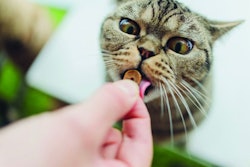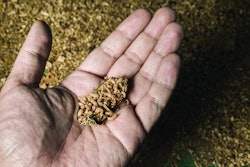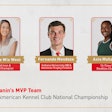
Brands that co-opt social movements to sell a product rarely meet with success, especially when that company doesn’t truly embody that movement. Just ask the Budweiser executives who hired a transgender person to pitch Bud Light.
In another example, Kendall Jenner’s promotion for Pepsi, which may have surreptitiously referenced the Black Lives Matter movement, resulted in protests and the removal of the advertisement. That commercial was seen by the public as being incredibly cringe-worthy because it was just using stereotypes, David Allison, founder of the Valuegraphics Project, said following his keynote presentation on May 2 at Petfood Forum in Kansas City, Missouri.
“Those demographic stereotypes are terrible, and people are starting to realize it and call it out today, more than ever before,” he said. “Now, the flip side of that is what I like to call values-washing. It's really not about pink-washing or black-washing or green-washing and all that. It's all really values-washing, because all those things are about our values. Values-washing is something that is a huge risk for every organization today.
“How do you avoid a potential misstep?" he said. "You need to know what people's values are. Not just with business poetry, you need to be doing it in a way that has some statistical accuracy.”
Pet food companies must look at what pet owners are truly driven by. Understanding what pet owners care about allows brands to find common ground. Often there are areas where pet owner and pet food company values overlap, most obviously the care both groups have for animals. Promotions that embody those shared values will avoid problems. When pet food companies fail to understand the values of their customers and consider only their demographics, stereotypes may result, along with cringe-worthy ads.
Reinforcing stereotypes through demographics
Humans tend to look at other humans and put them into demographic boxes, Allison said. Physical characteristics are usually the first thing we can observe about someone else, but appearances are deceiving. Likewise, simply looking at a pet owner’s age or ethnicity fails to observe what truly matters to them. Worse, focusing on demographics can make stereotypes seem valid.
“Some stereotypes are getting reinforced,” he said during his presentation. “What’s the big deal? The big deal is this. All of those stereotypes are fuel for ageism, racism, sexism, homophobia, and the rest of that terrible list that I wish I didn't even have to say.
“If we can just very simply change the way we look at each other some really good things happen… We're going to benefit. We personally are going to feel better about the work we're doing. Our own values are going to come to the forefront. Our work will benefit. We will make more money. We'll be more impactful, more effective. And slowly, surely, together, incrementally, we can shift the way the whole world thinks about each other. And we can build a kinder better place for us and for the generations that come after us.”
















